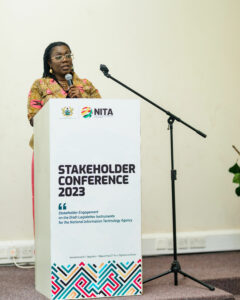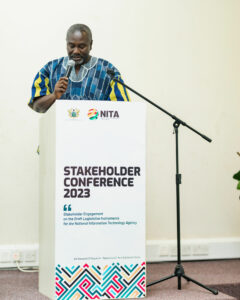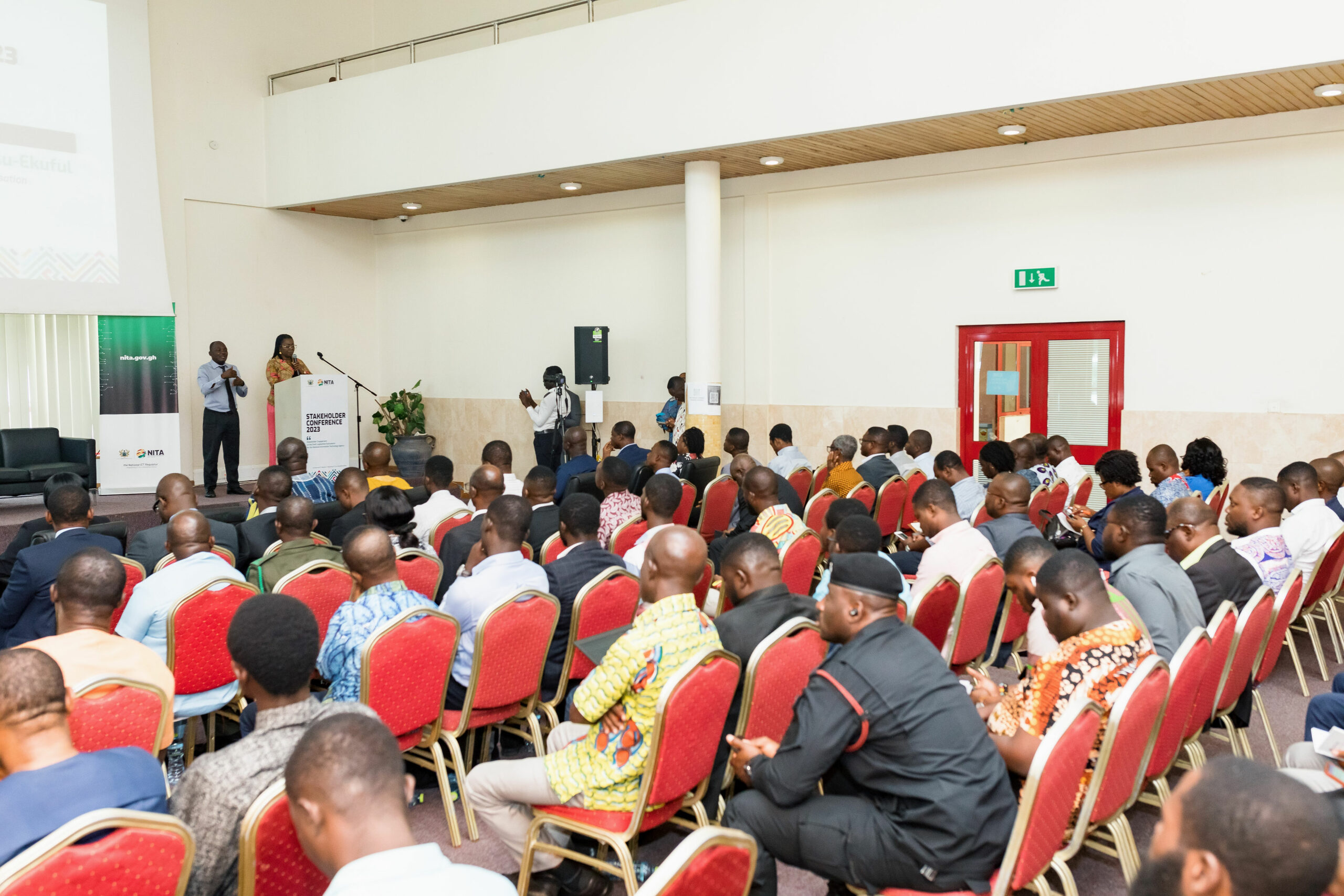
Accra, Ghana//-Stakeholders of Ghana’s ICT sector today made inputs into two critical Legislative Instruments (LIs) for the country’s National Information Technology Agency (NITA).
The two LIs- NITA Act, 2008 (Act 771), and the Electronic Transactions Act, 2008 (Act 772) are currently before Parliament.
Today’s consultative conference organised by the NITA afforded an opportunity for the ICT players to make their inputs into the draft LIs and fine tune them and later present the drafts to the Attorney-General to send to Parliament for action.
Presenting her keynote address at the conference, the Minister for Communications and Digitalisation, Mrs Ursula Owusu-Ekuful noted that 15 years into the passage of NITA Acts, the Agency does not have the LIs to function effectively and efficiently.
She believes that these LIs would empower NITA to perform the full functions envisaged by its enabling Acts.
Mrs Owusu-Ekuful stated that the country cannot develop its digital economy and digital transformation in a vacuum and its participation in the 4th Industrial Revolution requires a fit for purpose ICT ecosystem, operating within a standardised framework with properly laid out rules of engagement and competition.
“This framework will be regularly reviewed with input from the industry. Analogous agencies in Rwanda and Nigeria have a separate institution or partner managing the Government digital infrastructure such as fibre, data centres, etc”.
Ghana is in the process of setting up a similar structure which is best practice to ensure enforcement of policy and regulatory directives.

NITA has outsourced its operational activities to a private partner Smart Infraco Limited, which has already been introduced to the industry players in an earlier forum.
“We are constantly reviewing this structure and with input from you, industry players, will tweak it as and when necessary. In our increasingly interconnected world, the significance of technology cannot be overemphasised”, she told the stakeholders.
This government, according to her, recognises the transformational power and potential of ICT and has set ambitious goals of becoming an inclusive, progressive digital hub in our region, ensuring that no citizen is left behind.
The draft LIs Mrs Owusu-Ekuful said would lay the foundation for a robust regulatory framework that nurtures innovation, safeguards the rights and interests of all stakeholders, and addresses crucial domains such as digital infrastructure, applications, systems, innovation, and e-commerce.
Working in collaboration with other relevant agencies too, data protection and cybersecurity for both the public and private sector will be enhanced as they all play essential roles in achieving these overarching objectives.
“It is pertinent to acknowledge that legislation alone cannot bring about the desired transformation. It is only through our collective efforts and close collaboration with all stakeholders that we can establish the right legal and regulatory framework to achieve the desired transformation”.
The successful implementation and widespread adoption of these legislative instruments can only facilitate this process.
Each of you, representing diverse sectors and industries, brings a wealth of expertise and perspectives to this endeavour and it is this diversity that will enable us to craft an ecosystem that best serves the interests of our nation and facilitates the growth of this critical sector, she said.
This stakeholder engagement has been designed as a vital platform for open dialogue and constructive feedback on the draft LIs. Your input, insights, and recommendations will be invaluable in refining and enhancing these draft instruments, Mrs Owusu-Ekuful assured.
“Together, we must address the concerns and challenges faced by the private sector, civil society and the public at large, striking a delicate balance that encourages innovation, privacy safeguards and trust”.
She therefore encouraged all the stakeholders present to consider the long-term implications of these LIs on their digital future.
Emphasising: “It is not just about your individual organisation or sector, but about the digital transformation of our country. Let us envision a Ghana where every citizen enjoys access to affordable, reliable, and secure digital services, where entrepreneurs and startups thrive, leveraging technology to propel economic growth and create sustainable employment opportunities”.
A Ghana where our education, healthcare, agricultural, industrial and governance systems, amongst others, undergo transformational change through digitalisation. These legislative instruments must align with the objects of Acts 771 and 772 and we can all help ensure that they do, working together”.
In his welcome address, the Director General of NITA, Richard Okyere-Fosu lamented that that enacting a Legislative Instrument for an Act is supposed to be carried out shortly after the Act is passed, but NITA’s situation was not the case, and it has taken 15 years to no avail.

However, he is confident that the implementation of Act 771 and Act 772 can only be effective when these Legislative Instruments are approved by Parliament, and it serves as a crucial foundation for the nation’s digital transformation.
“The success of these Acts relies on the implementation of the Legislative Instruments and in our ability to translate them into tangible action which will be beneficial to Ghana”.
Mr Okyere-Fosu urged all the stakeholders to take the various sections seriously and come up with suggestions and strategies for the smooth utilisation of the Legislative Instruments when passed by Parliament.
“Our collective aim should be the fulfilment of an age long responsibility which we neglected and the need to shape the ICT ecosystem for posterity. Your perspectives, insights, and suggestions will help shape the final form of these legislative instruments”.


